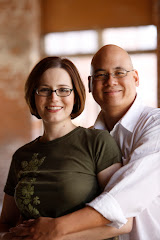After completely reading the section, I've had another thought. Looking at the educators, their philosophies of education seem to stem from political and religious views. For the educators in chatpers 4-6, try and correlate their political philosophies and educational practices. How does the one bleed into the other?


1 comment:
Friedrich Froebel-Different sources say different things about Froebel religious beliefs. Some say he seemed to have a strong Christian faith whereas others espouse him as believing in pantheism, the belief that God and nature are synonymous. God is nature and nature is God. After much reading it seems that one bled into the other. He was raised in a Lutheran pastor’s home. He also grew up during several revolutions, the American and French, which emphasized that the individual is important. On the other hand he was raised in the Germanic Romanticism movement with an emphasis on nature, beauty and innocence (Manning, 2005). These ideas resonate throughout his educational philosophies. He believed in the use of nature to teach as well as the law of unity and Lebenseiningung, the interconnection of everything. He also saw the innate goodness of children. He also believed in self-activity and letting children explore. The ideas of independence may arise in this thought.
Grace Owens—I have been unable to find much in regards to her but she seems to be very progressive in thought. She published books, sought to make changes though the political and helped create the Nursery School Association.
Margaret & Rachel McMillan—socialists—belief about “good health being the only capital most working men possessed.” (119) The focus of the sisters was to encourage and maintain this capital. Their focus was to provide way to provide medical, dental, nutritional and social support for young children. They helped to pass laws (e.g. Notification of Birth Act and Fisher Act) and caused social change. School Board gave up land and created open-air nursery schools. Margaret was the first president of the Nursery School Association.
Jean Piaget—came from a religious background but he watched his mother become overzealous and sent him in the other way (Pass, 2004). He turned to his strong scientific background which was the way the world was turning. More and more people turned to scientific methods to explore topics. The rest of his career was spent in research and observation to explain children and cognition. He created a clinical model and standardized procedures to investigate cognition development.
Maria Montessori—comes from a Roman Catholic background. She has a strong scientific slant coming from her medical work. Montessori lived through WWI and WWII. She was relocated out of Italy into the Netherlands. All these influences showed up in her educational philosophy. She thought peace could be obtained through education. She observed children and modified the “materials” as children did or did not play with them. She created a scope and sequence as well as kinds of work to her curriculum. Her philosophy of sensitive periods and absorbent mind emerged from her observations and scientific background.
Lascarides, V. C., & Hinitz, B. F. (2000). History of early childhood education. New York, NY: Falmer Press.
Manning, J. P. (2005).
Rediscovering Froebel: A call to re-examine his life and gifts. Early Childhood Education Journal, 32(6), 371- 376.
Pass, S. (2004). Parallel paths to constructivism: Jean Piaget and Lev Vygotsky. Greenwich, CT: Information Age Publishing.
Roopnarine, J. L., & Johnson, J. E. (2005). Approaches to early childhood education (4th ed). Upper Saddle River, NJ: Pearson.
Post a Comment